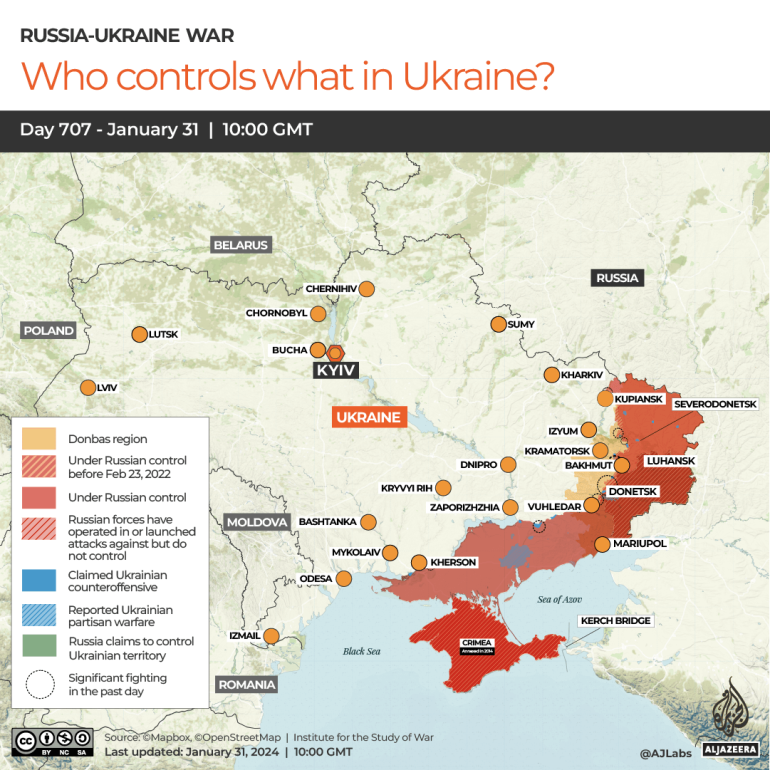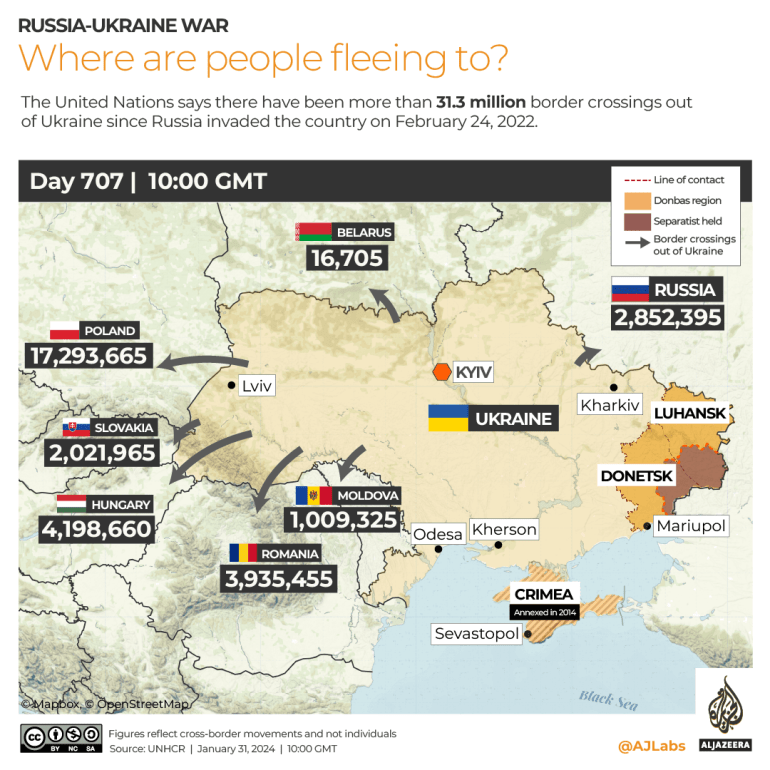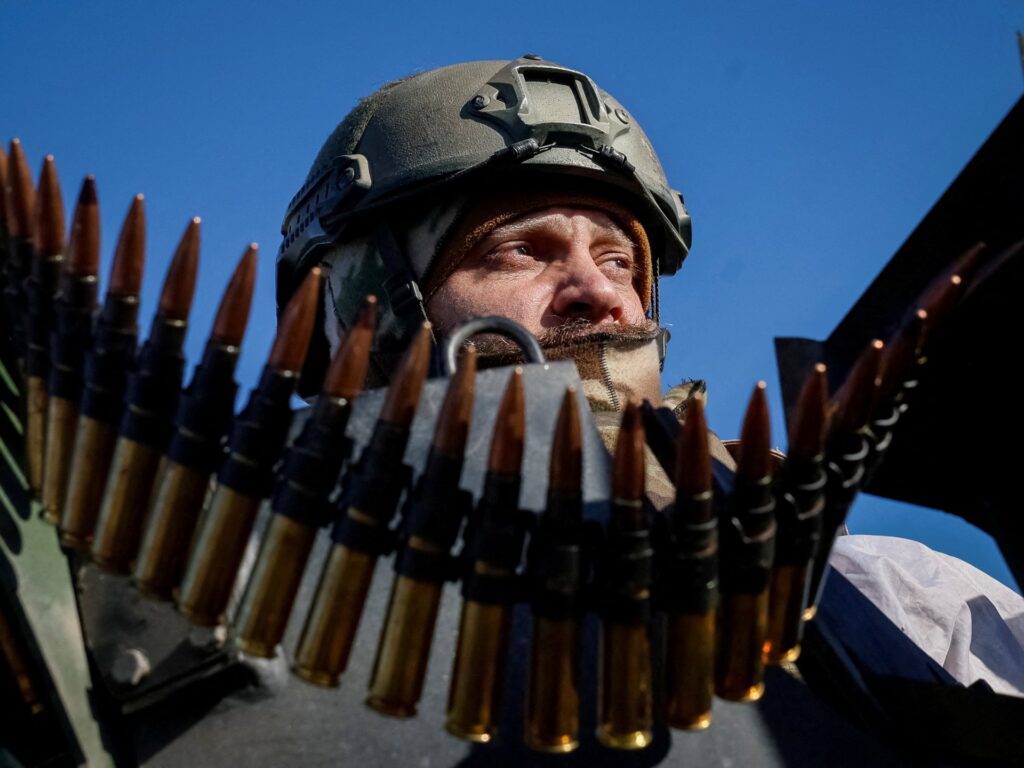The European Union is ahead of a key summit on Thursday, with the bulk of the second attempt to pass a 50 billion euro ($54 billion) EU budget amendment to support Ukraine's finances for the next four years. become.
The amendments, along with 20 billion euros ($22 billion) in military aid to Ukraine in 2024, were vetoed by Hungary at a regular summit in December last year.
The European Commission, the EU's executive arm, will reportedly offer Prime Minister Viktor Orban an opportunity to block the continuation of aid next year, when the EU reevaluates whether Ukraine still meets the requirements to receive aid. He is reportedly hoping to include Hungary. money.
The mediation changed its course by Sunday, with the Financial Times reporting that the EU also plans to sabotage Hungary's economy if it refuses to cooperate.
Details of the plan were secret, but the EU has influence.
About 90% of Hungary's exports are bought on the internal market, and the EU has withheld 30 billion euros ($32 billion) in aid to Hungary, part of which it released in December in exchange for Orbán's departure. It promised to release 10 billion euros ($11 billion). This is the room where the remaining 26 heads of government voted to grant Ukraine and Moldova official candidate status for the EU.

Prime Minister Orbán's political director said on Monday that Hungary was ready to consider cooperation, and Orbán reportedly confirmed this in remarks to Le Point on Tuesday. But EU officials said the deal was still uncertain.
Meanwhile, a $60 billion U.S. aid package for Ukraine remains stalled in the U.S. Senate, where Republicans loyal to presidential candidate Donald Trump are seeking an agreement with President Joe Biden's administration on border security with Mexico. It is reported that there are.
EU foreign policy chief Josep Borrell said the bloc was close to agreeing 5 billion euros ($5.4 billion) in emergency funding from the European Peace Facility. “Now is not the time to reduce support for Ukraine. On the contrary, we need to provide financial resources, military equipment, and training of soldiers more quickly,” Borrell said.
The EU established the EPF in 2021 to help finance global military operations.
EU aid is crucial for Ukraine, which faces a $43 billion budget deficit this year and is expected to cover $41 billion in international aid.
air combat
Ukraine says a Russian winter offensive is underway to retake lost territory in Kharkiv and Luhansk and complete the conquest of Donetsk. But most of the action took place in the air, with some focused on the line of contact as part of Russia's efforts to disrupt Ukraine's defenses.
Russia's Defense Minister Sergei Shoigu, in a rare appearance touring the defense industry, said he wants to increase production of drones, missiles and air defense missiles used to intercept aircraft.
He said that production of air defense missiles had already doubled during the Ukraine war, but that was not enough.
“There are some important issues that we have to deal with,” Shoigu said in the Ural region city of Yekaterinburg. “There are also issues with the engine, and there is also the issue of establishing a production system for the launcher.”

Shoigu's comments came as Ukraine appears to have scored a new blow against Russian targets.
Geolocated footage showed a fire breaking out at the Rosneft refinery in Tuapse, on the eastern coast of the Black Sea, on January 24. The Security Service of Ukraine (SBU) claimed responsibility for the attack. Local residents reported several explosions and footage showed drones operating in the area.
The SBU has developed long-range surface and airborne drones, and has successfully used them to attack targets in Russia's Black Sea Fleet and Crimea. This year's focus was on energy infrastructure. On January 21, it attacked the Novatek gas condensate processing plant near St. Petersburg.
Russian authorities announced on January 30 that they had shot down 21 Ukrainian drones launched against Crimea.
Russia also continues to launch waves of missile and drone attacks against Ukraine, and has sharply stepped up its attacks since December 29th. Ukrainian President Volodymyr Zelenskiy said Russia had launched 330 missiles and 600 drones this year.
On January 25, Ukraine shot down 10 of the 14 Shahid drones launched by Russia. Four S-300 missiles passed through. Three days later, Ukraine shot down four of eight Russian-launched Shahid drones and a Kh-59 cruise missile. Two Iskander missiles and three S-300 missiles passed through.
Ukraine announced the next day that it had shot down all eight Shahed drones launched, but six S-300 missiles had been defeated. The biggest barrage occurred on January 30, when Ukraine shot down 15 of 35 drones, along with two S-300 missiles.
cyber war
Ukraine's military intelligence agency announced a major cyber victory in Russia's Far East. A cyberattack on the Far East Branch of Russia's Planet Space Hydrometeorology Scientific Research Center destroyed 280 of the center's servers.
Ukraine estimates it has destroyed two petabytes worth of “unique research developed over many years.”
According to Ukraine's Military Intelligence Service (GUR), the center receives satellite data and provides information to at least 50 Russian government agencies, including the Ministry of Defense (Ministry of Defense), which passes the information to defense contractors. It is said that he did.

“Dozens of strategic enterprises of the Russian Federation, operating in the interests of ‘defense’ and playing a key role in supporting the Russian occupation forces, remain without vital information and services for long periods of time. “It will be,” GUR said.
GUR estimated that the loss of servers and software caused $10 million in structural damage that cannot be replaced under sanctions. Russia has so far proven highly adept at evading sanctions.
Bloomberg News cited confidential data from the Russian Customs Service showing that Russia imported $1 billion worth of U.S. and European microchips last year despite sanctions, down from $2.5 billion in 2022. However, it is still quite large.
information war
Russia has been active in the information field.
Geolocation footage posted on January 24 showed a Russian Ilyushin 76 transport plane crashing in Belgorod, a Russian region bordering Ukraine.
Russia's Ministry of Defense announced that Ukraine shot down the plane using two air defense missiles tracked by Russian radar, killing six crew members, three military personnel and 65 Ukrainian prisoners who were to be replaced. did.
“The Ukrainian leadership was well aware that, in accordance with established practice, Ukrainian military personnel would be transported today on military transport aircraft to the Belgorod airfield for exchange,” the Russian Defense Ministry said.
“According to the agreement reached earlier, the event was scheduled to take place in the afternoon at the Korotilovka checkpoint on the Russian-Ukrainian border.”

The Russian government said Ukraine shot down the plane without any involvement “in pursuit of the objective of holding Russia responsible for the destruction of the Ukrainian military.”
Russian President Vladimir Putin repeated the claim two days later.
Ukrainian military intelligence confirmed the prisoner exchange and said it was investigating the circumstances of the crash.
Russia may have had a motive for an information campaign accusing Ukraine of “terrorism.”
The United Nations' highest court, the International Court of Justice (ICJ), is scheduled to rule on Friday on whether Russia violated international law by invading Ukraine.
Days after the February 2022 invasion, Ukraine filed a lawsuit with the ICJ, alleging that Russia violated international law by making false claims of genocide against Russians living in Ukraine. Russia tried unsuccessfully to have the case thrown out.
If the ICJ rules against Russia, it would be the second high-profile accusation since last March, when it found Putin personally responsible for organizing the abduction of a Ukrainian child. Become.


